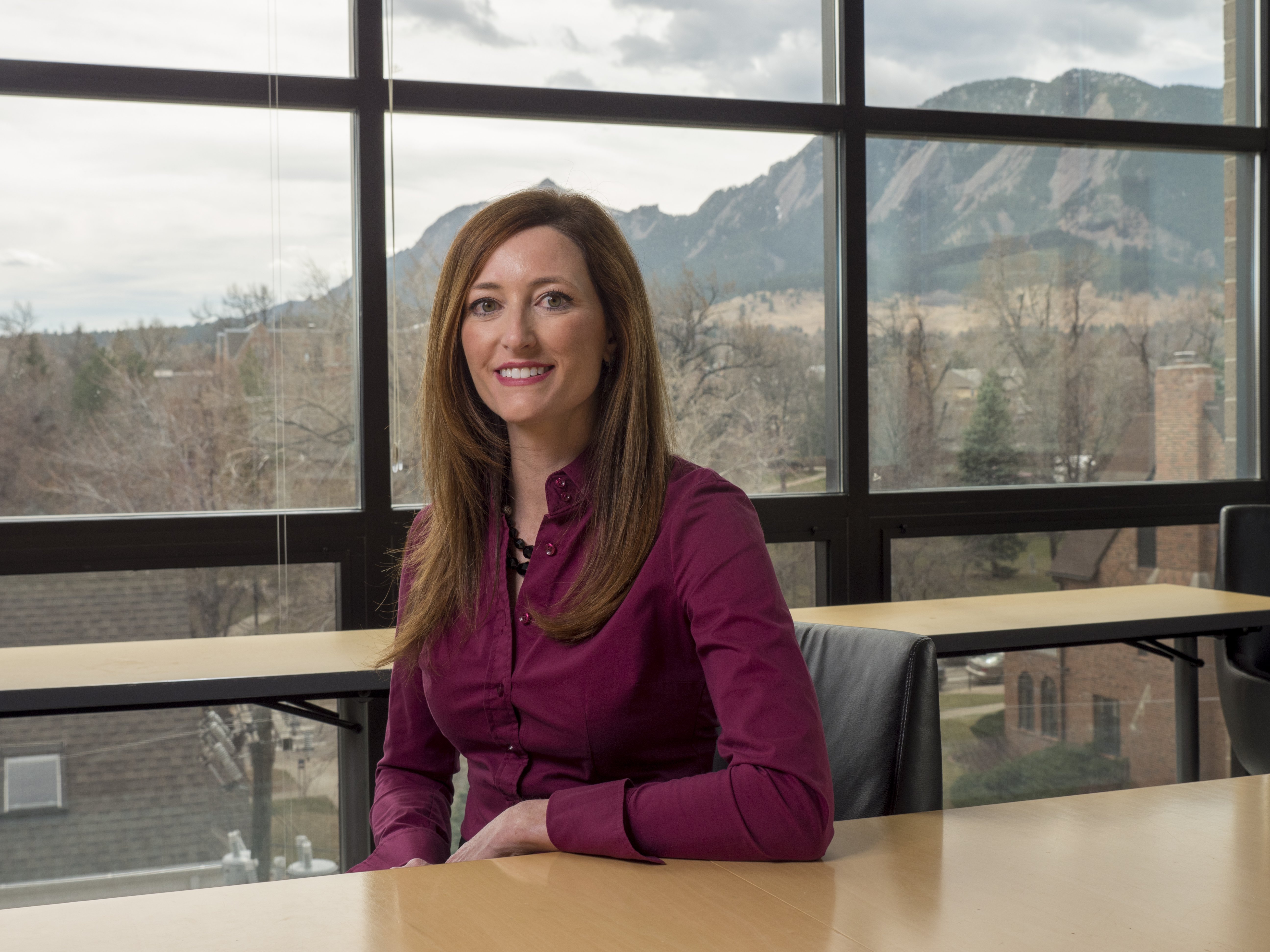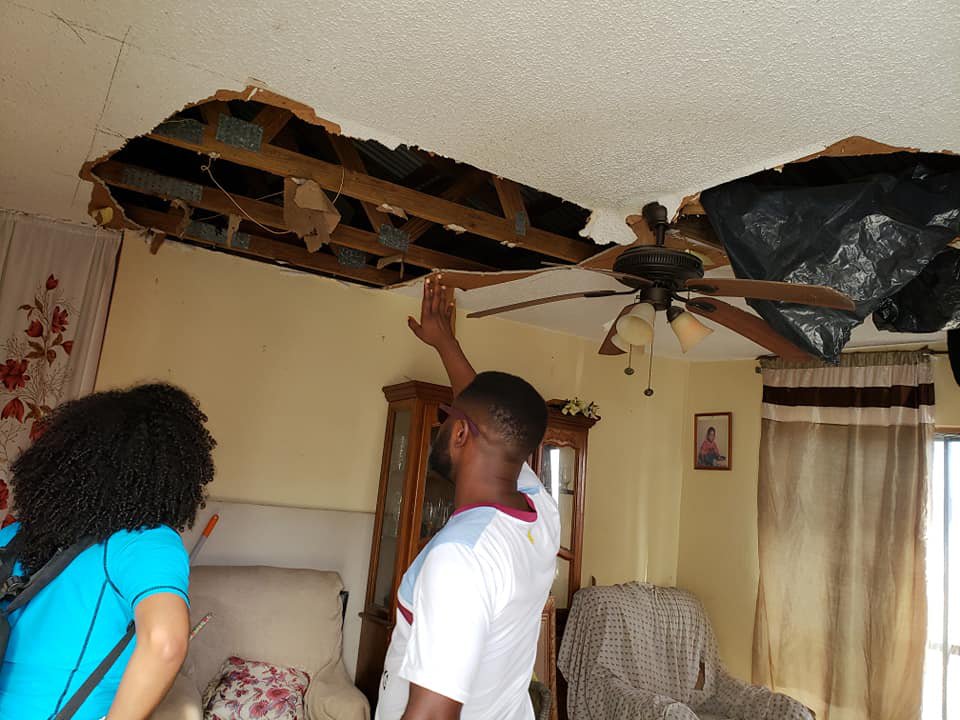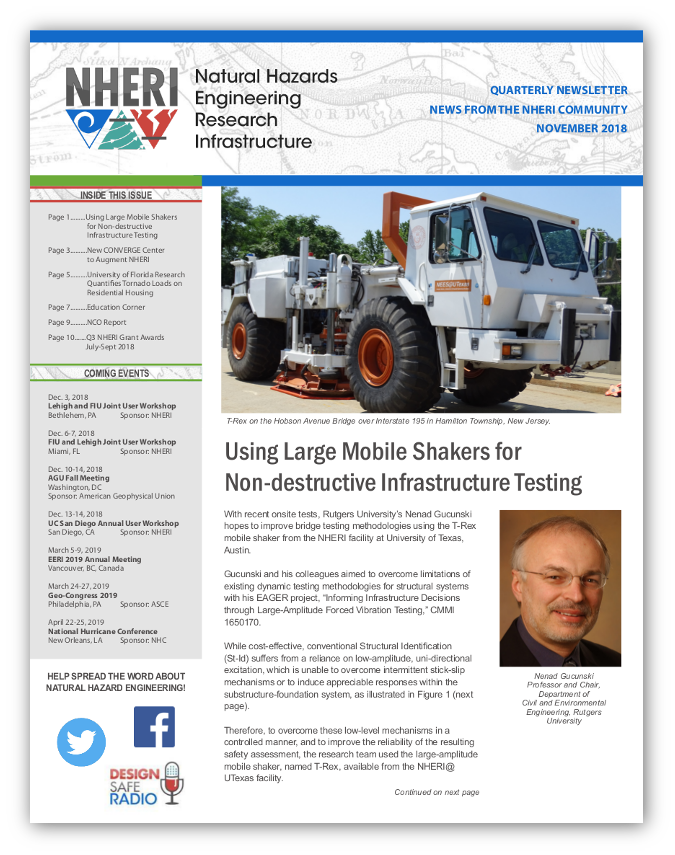New CONVERGE Center to Augment NHERI
Published on November 27, 2018

Lori Peek, Principal Investigator of CONVERGE, also directs the Natural Hazards Center at the University of Colorado Boulder.
To enhance the diversity of research underway in natural hazards, the National Science Foundation recently created CONVERGE, a $3 million research center at the University of Colorado Boulder. The center is a resource for the 11-member, NSF-funded Natural Hazards Engineering Research Infrastructure, known as NHERI.
One of the NSFs 10 Big Ideas, convergence describes the merging of scientific disciplines in a coordinated, reciprocal way that fosters the robust collaborations needed for successful inquiry. For NSF, convergence research is driven by a compelling problem that can be solved by deep integration between disciplines.
The CONVERGE facility will build and support the research partnerships and creative thinking needed to address complex problems that are posed by natural hazards, unsustainable development and rising economic inequality.
As a resource, CONVERGE catalyzes the efforts of the NHERI users through coordination of the various reconnaissance groups organized by the community with the support of NSF, said Julio Ramirez, director of the NHERI Network Coordination Office and the Karl H. Kettelhut Professor of Civil Engineering at Purdue University.

Members of the NSF-funded INCLUDES Minority SURGE Capacity in Disasters program learn about structural damage to housing following Hurricane Maria in the U.S. Virgin Islands. NSF INCLUDES is a comprehensive initiative to enhance U.S. leadership in science and engineering discovery and innovation by proactively seeking and effectively developing STEM talent from all sectors and groups in our society. (Photo: ©Hans Louis-Charles, 2018)
Augmenting NSF Support of Natural Hazards Research
Lori Peek, professor of sociology and director of the Natural Hazards Center at UCB, is the principal investigator for CONVERGE. She said the facility is aligned with NSFs goals for research convergence, as well as with NHERIs mission to improve the resiliency of the nations civil infrastructure to withstand natural hazards. The center is dedicated to bringing together engineering, social sciences, and interdisciplinary teams to reduce hazards losses and improve social wellbeing. Peek said the goal of risk reduction and enhanced resilience is central to the NHERI mission, and the CONVERGE center will help advance that through its focus on research collaboration and coordination.
Convergence science is about bringing together diverse people, perspectives, and skill sets to solve the worlds toughest challenges, Peek said. CONVERGE will allow us to link various research communities, to develop and share best practices for the ethical conduct of research, and to promote social science, engineering, and interdisciplinary natural hazards research to reduce vulnerability.
Broad Goals
The CONVERGE center functions as a resource for the broader social science and engineering communities. We are engaging in several crucial tasks that are meant to advance the broader research enterprise, Peek explained. These tasks include:
- Creating the first-ever reconnaissance Leadership Corps, including the leaders of the geotechnical, social science, and structural engineering extreme events reconnaissance (EER) networks and associated NHERI facilities. The Leadership Corps will develop best practice guidance for reconnaissance researchers and research teams and will help to establish effective communications protocols with the media and with local, state, and federal government officials in the event of a major disaster.
- Identifying, connecting, and coordinating social science researchers and interdisciplinary research teams through the Social Science Extreme Events Research (SSEER) and Interdisciplinary Science and Engineering Extreme Events Research (ISEEER) networks.
- Developing a series of training modules and research briefing sheets for students and researchers who are new to the hazards and disaster research space.
- Funding social science and interdisciplinary quick response research teams with a special emphasis on democratizing the research process and engaging researchers from historically underrepresented groups.
- Collaborating with the NHERI DesignSafe Cyberinfrastructure, located at the University of Texas-Austin, to develop a novel natural hazards and disaster focused social science data model for curating, publishing and sharing of open data. This will serve as a central repository for social science research instruments, data collection and sampling protocols, and datasets.
- Collaborating with NHERI RAPID facility, based at the University of Washington, to advance social science and interdisciplinary mobile applications for research.
- Collaborating with the NHERI Network Coordination Office, located at Purdue University, to help develop the next generation of researchers and scientists focused on mitigating the exposure of civil infrastructure to natural hazards and to disseminate the impact of the efforts of current and future NHERI users.

University of South Florida graduate student Michelle Saunders interviews a family evacuating with their pet parrot before Hurricane Irma. Saunders was part of a team of NSF-funded Quick Response researchers led by Professor Jennifer Collins. The Natural Hazards Center at the University of Colorado Boulder administers the NSFsupported Quick Response Research program, which provides small grants to facilitate perishable data collection in the aftermath of disaster. (Photo: ©Emily Cerrito, 2017)
Connecting Social Scientists and Engineers
In an era marked by climate change and rising social and economic inequality, disasters are becoming more intense and severe. My vision for CONVERGE is for us to come together as social scientists and engineers to see how we can turn the tide and reduce the harm and suffering from these extreme events, Peek said.
Shortly, CONVERGE will release the Social Science Extreme Events (SSEER) map and a series of quick response research briefing sheets. Currently, the team is conducting the first-ever census of social science hazards and disaster researchers. Find out more about the census at the Natural Hazards Center website.
The Team
CONVERGE is located at the Natural Hazards Center at the University of Colorado Boulder, one of the nations oldest social science and multidisciplinary academic hazards research centers. Members of the Natural Hazards Center team are helping get CONVERGE off the ground. Moving forward, the center will hire two postdoctoral scholars and identify members for various advisory committees.
CONVERGE also involves collaborations with the Center for Environmental Journalism at the University of Colorado Boulder. In addition, the CONVERGE team will partner with the Bill Anderson Fund and the NSF-funded Minority SURGE program to ensure that emerging scholars from historically underrepresented groups are engaged in future reconnaissance efforts.
CONVERGE: Coordinated Social Science, Engineering, and Interdisciplinary Extreme Events Reconnaissance Research, CMMI #1841338.
NHERI Quarterly
Autumn 2018
Using Large Mobile Shakers for Non-destructive Infrastructure Testing
New CONVERGE Center to Augment NHERI
University of Florida Research Quantifies Tornado Loads on Residential Housing
Message from the Network Coordination Office
Q3 NHERI Awards JulySept 2018






